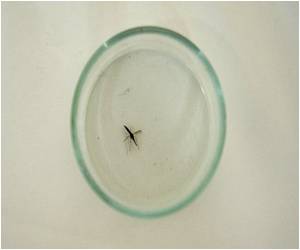Two new tests developed by scientists detect if the malaria parasites in a given patient is going to be resistant or susceptible to drug artemisinin. Artemisinin is widely used for treating malaria.

In both tests, young parasites are briefly exposed to a high dose of artemisinin, mimicking the way parasites are exposed to the drug in people being treated for malaria, and their survival is measured 72 hours later.
The first test is conducted on blood taken from a malaria patient at the same time as the first dose of artemisinin-based combination drug therapy is administered.
The test returns results in 72 hours and can predict whether the patient has slow-clearing, drug-resistant parasites. The researchers note that the simple, new test could be used for surveillance studies to monitor and map the emergence or spread of artemisinin-resistant malaria parasites.
The second test is conducted on parasites grown in the laboratory. This test requires trained technicians to adapt parasites from a malaria patient to a laboratory culture, synchronize the life-stages of the parasites, and then apply the drug only to those that are three hours old or younger.
This test will likely be most useful in future studies designed to elucidate the molecular basis of artemisinin resistance and to screen new malaria drugs.
Advertisement












